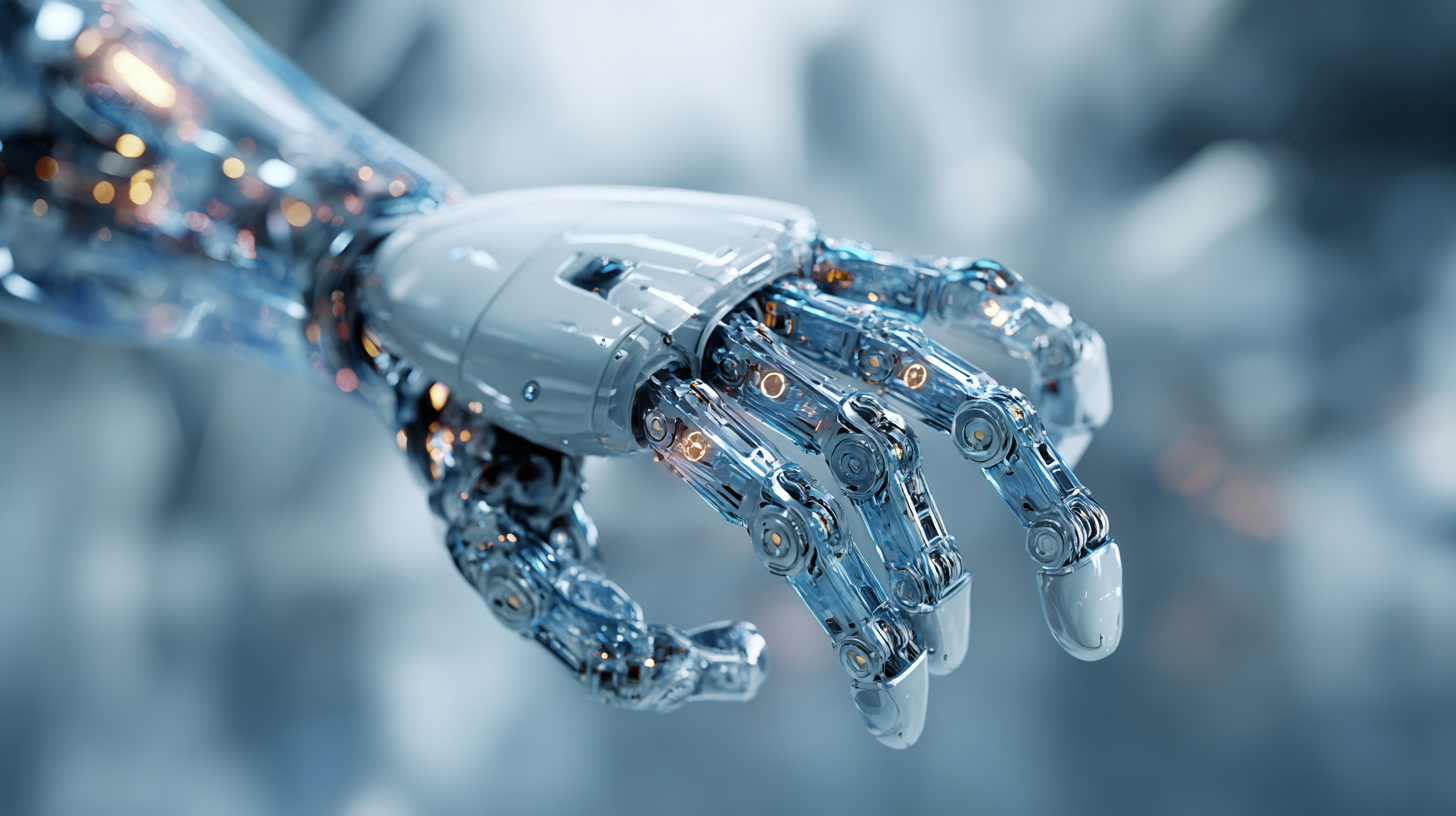In an era defined by rapid technological advancements, the interplay between automation and innovation is fundamentally transforming global industries across various sectors. As businesses strive to enhance efficiency and adapt to ever-evolving market demands, the integration of automation tools is revolutionizing traditional processes, thereby enabling increased productivity and cost-effectiveness. Simultaneously, innovation drives the creation of new products, services, and business models that cater to the changing needs of consumers and industries alike. This dynamic relationship not only reshapes operational strategies but also fosters a culture of continuous improvement, encouraging organizations to explore new frontiers. As we delve into the implications of automation and innovation, it becomes evident that these forces are not merely enhancing existing structures but are also unlocking unprecedented opportunities for growth and sustainability in a competitive global landscape.

Automation and innovation, particularly through the integration of artificial intelligence (AI), are fundamentally transforming workflows across various sectors, notably in healthcare. This data-rich industry stands to gain immensely from AI deployment, as it streamlines administrative tasks, enhances patient care, and enables more accurate diagnoses. The application of AI helps in processing vast amounts of patient data, which not only improves operational efficiency but also supports healthcare providers in making informed decisions swiftly. As a result, the focus can shift from mundane tasks to more critical patient interactions, ultimately enhancing the overall quality of care.
In addition to healthcare, AI is reshaping workflows across numerous industries by automating routine processes and solving complex challenges. The rise of AI agents signifies a paradigm shift, as companies increasingly adopt these technologies to optimize workflows and enhance productivity. By employing AI-powered automation, organizations can significantly reduce overhead costs while empowering their workforce to focus on strategic initiatives. This transformational trend marks a pronounced shift in how businesses operate, fostering a future where innovation is driven by intelligent systems and human ingenuity working in harmony.

Innovative technologies are becoming the cornerstone for transforming manufacturing and production across various sectors. As industries adapt to changing demands, advanced techniques such as artificial intelligence, Internet of Things (IoT), and 3D printing are streamlining operations and enhancing efficiency. For example, the latest trends in advanced pharmaceutical manufacturing highlight the importance of continuous processes and localized production, which not only reduce costs but also improve the speed of bringing life-saving drugs to market.
In the chemicals sector, a wave of innovation is catalyzing change, driving companies to rethink their approaches to sustainability and efficiency. These advancements are crucial as industries strive to secure a stable supply of critical raw materials necessary for transitioning to greener alternatives. By investing in digital frameworks and addressing the current skills gap, manufacturers are better positioned to leverage these innovative technologies, ensuring they stay competitive in a rapidly evolving global market. Such technological developments promise to redefine how industries operate, making them more adaptable and resilient to future challenges.
As automation continues to reshape global industries, businesses must adopt innovative strategies to stay competitive in this rapidly changing landscape. One critical approach is investing in employee training and development. By equipping their workforce with new skills that align with automated technologies, companies can enhance productivity and foster a culture of adaptability. This not only mitigates the fear of obsolescence among employees but also empowers them to leverage automation as a tool for strategic advantage.
Another essential strategy is to embrace flexible business models that can quickly respond to automation advancements. Companies should explore partnerships with tech firms to integrate cutting-edge solutions that streamline operations. Additionally, leveraging data analytics can provide valuable insights into consumer behavior and operational efficiency, allowing organizations to make informed decisions. As industries evolve, those that prioritize innovation and agile practices will find themselves better positioned to thrive amid the complexities of automation.
In today's rapidly evolving business landscape, automation is playing a pivotal role in enhancing customer experience. According to a report by McKinsey, nearly 70% of companies that leverage automation have reported improved customer interactions. Automated solutions, such as chatbots and AI-driven customer service platforms, not only streamline operations but also provide 24/7 assistance, ensuring customers receive prompt responses regardless of the time. This accessibility fosters a sense of reliability and satisfaction among consumers, ultimately driving brand loyalty.
Tips for successful implementation include investing in AI technologies that can analyze customer data to personalize interactions, as personalized experiences lead to a 20% increase in customer satisfaction, according to a study by Deloitte. Additionally, integrating feedback mechanisms within automated systems can identify pain points in real-time, allowing businesses to adapt swiftly to customer needs. Emphasizing the importance of employee training in this transition is crucial; empowered staff can better support automated systems and enhance the overall customer journey.
As businesses continue to adopt innovative automated solutions, they must not forget the human element. Combining automation with human intelligence can lead to optimal customer engagement, as research by PwC shows that 82% of consumers desire a human element in digital interactions. Therefore, striking a balance between technology and personal touch is essential for a superior customer experience.
| Industry | Automation Tool | Customer Experience Impact | Efficiency Gain (%) |
|---|---|---|---|
| Retail | Chatbots | 24/7 Customer Support | 30% |
| Healthcare | Telemedicine Platforms | Improved Patient Access | 40% |
| Finance | Robo-Advisors | Personalized Financial Advice | 25% |
| Manufacturing | Robotics | Faster Production Time | 50% |
| Hospitality | Self-Check-In Kiosks | Enhanced Guest Experience | 20% |
The role of data analytics in shaping automation and innovation trends is increasingly vital across global industries. According to a report by McKinsey & Company, organizations leveraging data analytics can enhance productivity by up to 25%. This is particularly evident in manufacturing, where predictive analytics are utilized to optimize supply chains and reduce downtime. By harnessing vast amounts of data collected from machines and processes, companies can forecast maintenance needs and streamline operations, leading to significant cost savings and efficiency improvements.
Moreover, in the retail sector, data analytics is transforming shopper experiences by enabling personalized marketing strategies. A report from Gartner indicates that 87% of retail executives have stated that AI and data insights will be crucial for their digital transformation initiatives over the next few years. This growing emphasis on data-driven decision-making allows companies to respond swiftly to market trends, tailoring offerings to meet consumer demands effectively. As automation technologies continue to evolve, their integration with robust data analytics tools will not only enhance operational efficiencies but also foster a culture of innovation across industries.
